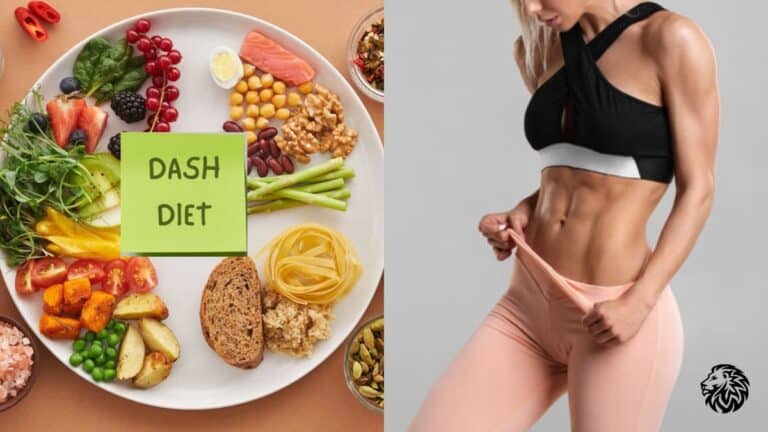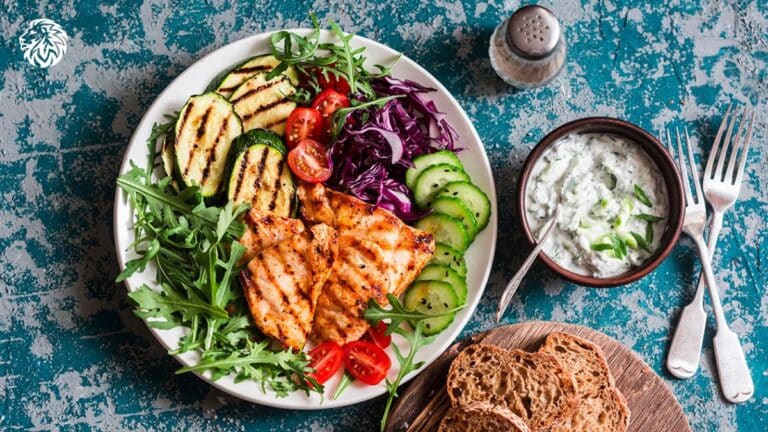Key Takeaways:
- There is no one-size-fits-all answer to how many times a day you should eat to lose weight.
- The timing of your meals and the quality of the food you eat are more important than the number of meals you eat per day for weight loss.
- Listening to your body, planning your meals ahead of time, choosing nutrient-dense foods, staying hydrated, and not skipping meals are all helpful tips for finding the right eating pattern for weight loss.
- Snacking can be a helpful tool for weight loss if you choose healthy options, but it’s important to avoid overeating and snacking on high-calorie, processed foods.
Losing weight can be difficult, especially if you do not know how often you should eat to reach your objectives. It’s simple to feel overwhelmed and confused when there is so much conflicting information available. However, the reality is that there isn’t a universally applicable response to this query. Your age, gender, level of activity, and metabolism all play a role in how many meals you should eat each day. The science behind meal frequency will be discussed in this article, along with some advice to help you choose the best eating pattern for your weight loss endeavors.
Understanding the Science of Meal Frequency
How Often Should You Eat to Lose Weight?
The idea that eating more often can help you lose weight has been around for a long time. Many experts believe that eating smaller, more frequent meals throughout the day can help you stay full, curb cravings, and boost your metabolism. However, this assertion is not well supported by science. A review of 12 studies found no appreciable difference in weight loss between those who ate three meals a day and those who ate six meals a day.
The Effect of Meal Timing on Weight Loss
Even though the number of meals you eat each day may not have a significant impact, the timing of your meals can affect weight loss. Research suggests that eating a larger meal earlier in the day and a smaller meal later in the day can help you lose weight. This is because eating a larger meal when your metabolism is higher can help you burn more calories. Your body’s metabolism is higher earlier in the day.
The Role of Snacking in Weight Loss
If done correctly, snacking can be a useful weight-loss tool. You can avoid overeating later in the day by selecting healthy snacks that are high in protein and fiber to keep you full and satisfied in between meals. Snacking on processed foods with high calories, however, can result in weight gain. If you decide to snack, be sure to pick healthy options and stick to one or two snacks per day.
Factors That Affect Meal Frequency for Weight Loss
Age and Meal Frequency
As you age, your metabolism slows down, which means you burn fewer calories at rest. This means that older adults may need to eat fewer calories overall to achieve weight loss. However, this does not necessarily mean that they should eat fewer meals. Eating three balanced meals a day, with the right balance of protein, healthy fats, and fiber, can still be an effective way to lose weight.
Gender and Meal Frequency
There is some evidence to suggest that women may receive help from eating smaller, more frequent meals throughout the day. This is because women tend to have higher levels of ghrelin, the hunger hormone, than men. Eating smaller, more frequent meals can help keep ghrelin levels in check and reduce cravings.
Activity Level and Meal Frequency
If you’re physically active, you may need to eat more often to fuel your workouts and recover properly. However, this doesn’t necessarily mean that you need to eat more calories overall. Instead, focus on eating nutrient-dense meals that are high in protein, healthy fats, and complex carbohydrates to help support your fitness goals.
Tips for Finding the Right Meal Frequency for Weight Loss
Listen to Your Body
The best way to figure out the right meal frequency for weight loss is to listen to your body. Pay attention to how you feel after eating and adjust your eating patterns accordingly. If you find that eating three balanced meals a day works best for you, stick with it. If you prefer smaller, more frequent meals, that’s okay too. The key is to find an eating pattern that works for you and that you can stick to in the long term.
Plan Your Meals Ahead of Time
Making a meal plan can help you stay on track with your weight loss goals and prevent overeating. Spend some time organizing your meals and snacks at the beginning of each week. You can do this to stay on track and make better decisions all week long.
Choose Nutrient-Dense Foods
The quality of the food you eat is just as significant for weight loss as the quantity. Put an emphasis on consuming foods that are nutrient-dense and abundant in fiber, healthy fats, and protein. In addition to giving your body the nutrients it needs to function properly; this will help you feel full and satisfied in between meals.
Stay Hydrated
Drinking plenty of water throughout the day can help you stay full and avoid overeating. Aim to drink at least 8-10 glasses of water per day and consider drinking a glass of water before meals to help reduce your appetite.
Don’t Skip Meals
It may seem like an innovative idea to skip meals in order to reduce calories, but doing so can have the opposite effect and cause you to overeat later in the day. Make sure to eat breakfast, lunch, and dinner, and if you feel like you need it, add a healthy snack or two.
Conclusion
In conclusion, there is no universally applicable answer to the query of how often you should eat in order to lose weight. Your age, gender, level of activity, and metabolism all affect how often you should eat to lose weight. Even though eating more often may not always result in weight loss, the timing and caliber of your meals can have a significant impact. You can find the best eating pattern to aid in your weight loss efforts by paying attention to your body, planning your meals in advance, selecting foods that are high in nutrients, staying hydrated, and not skipping meals.
FAQs
Is it better to eat three meals a day or six meals a day for weight loss?
There is no clear consensus on whether eating three meals a day or six meals a day is better for weight loss. While some experts believe that eating more often can help you stay full and boost your metabolism, research has not shown a significant difference in weight loss between the two eating patterns.
Can eating too few meals a day slow down your metabolism?
Eating too few meals a day can slow down your metabolism, as your body may start to conserve energy to compensate for the lack of food. This can make it harder to lose weight and may lead to feelings of fatigue and lethargy.
Should I avoid snacking if I want to lose weight?
Snacking can be a helpful tool for weight loss, if you choose healthy options that are high in protein and fiber. However, if you’re prone to overeating or snacking on high-calorie, processed foods, it may be best to avoid snacking altogether.
Can drinking water help with weight loss?
Drinking water can help with weight loss by helping you stay full and avoid overeating. Additionally, staying hydrated can help boost your metabolism and improve digestion.
How important is it to plan your meals ahead of time for weight loss?
Planning your meals ahead of time can be a helpful tool for weight loss, as it can help you stay on track with your eating goals and avoid making impulsive, unhealthy choices. By taking the time to plan out your meals and snacks, you can ensure that you’re getting the right balance of nutrients to support your weight loss journey. Additionally, meal planning can help you save time and money by reducing the need to eat out or buy convenience foods. Overall, planning your meals ahead of time is a simple but effective way to stay on track with your weight loss goals.







